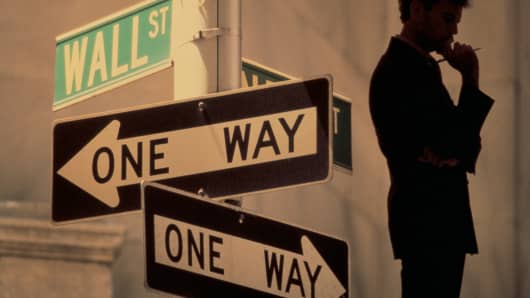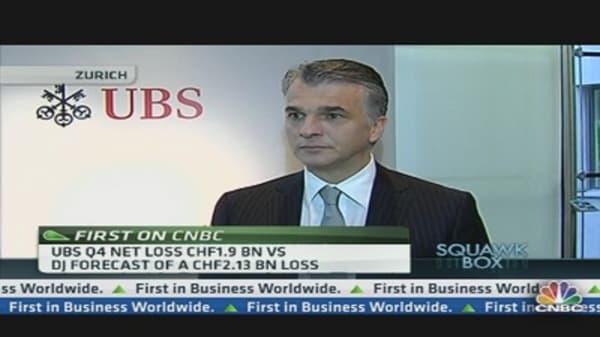What a difference a few days can make.
Last week, the Dow Jones Industrial Average vaulted above the technical and psychological resistance level of 14,000, the highest since 2007. Yet rather than forging ahead to new highs, blue-chips spent a listless week bobbing and weaving near that area.
On Friday, the Dow industrials virtually wiped out the week's modest losses. Yet the stalled advance underscores how initial euphoria has now given way to growing skepticism about the fundamental outlook – and by extension, the ability of stocks to set new highs.
(Read More: Traders Search for Pullback Trigger as Fears Rise.)
"Everyone wants this correction to happen, which is really interesting," said Josh Brown, an investment adviser with Fusion Analytics on CNBC this week. "Even the perma-bulls are begging for this correction because nobody's long enough if we're going to continue to go up as we have in January."
Surveying the landscape market participants find no shortage of reasons to be wary. Europe has once again become a flashpoint of market instability: Spanish and Italian government bond yields are marching higher, while the European Central Bank warns about economic weakness.
Across the Atlantic, conditions are hardly rosier. Although most U.S. corporate earnings have surprised to the upside, higher taxes have begun chipping away at consumer spending power, making many CEOs cautious about the outlook for 2013. Meanwhile, last quarter's unexpected economic contraction is also raising the specter of a double-dip recession.
(Read More: Restored Payroll Tax Pinches Those Who Earn the Least)
The uncertainty has kept investors on the sidelines. Even bullish stalwarts are warning of an impending downturn, despite the fact that the Nasdaq Composite Index has now officially joined the rally by zeroing in on a 12-year high above 3,100.




